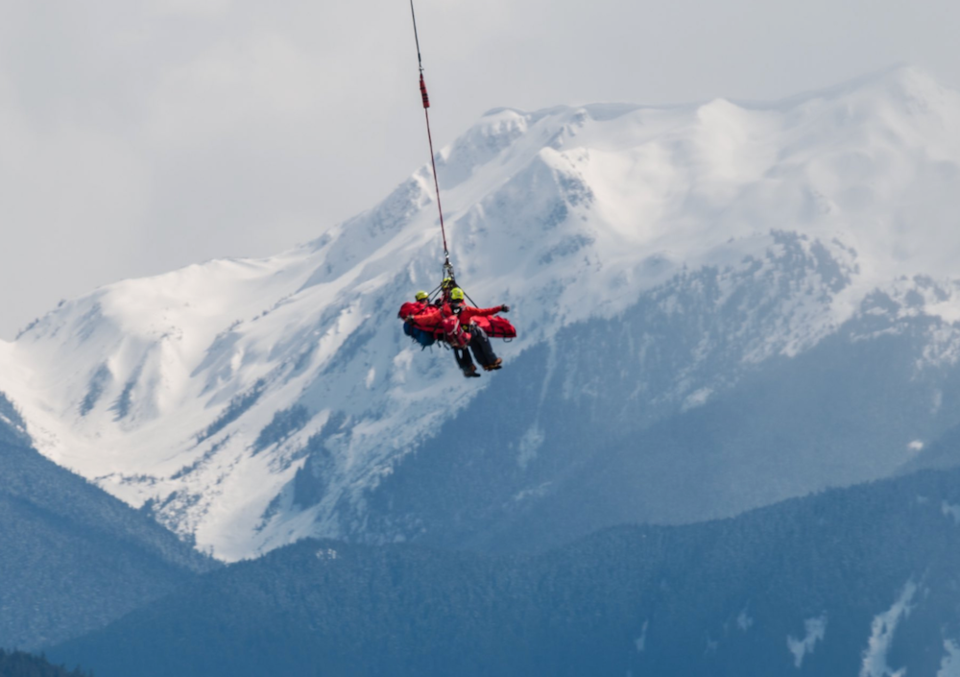Before leaving for a hike, I always make sure my phone is charged. That’s not necessarily motivated by the fact that I’d need it to call for help, in the event I or a friend needed it, but so I can snap as many photos as I want without having to worry about my battery running out.
That’s the thing: No one ever heads into the backcountry expecting for something bad to happen.
Even so, I tell someone where I’m going, pack double the amount of snacks I need, keep a whistle on my keychain and toss an extra layer or two into my backpack. I have a habit of hoarding water until I arrive back at the car, just in case something went wrong and I had to survive off whatever was left in my Nalgene.
None of these things would realistically prevent me from needing help if I fell and broke a leg, but hopefully they would help rescuers find me sooner or keep me more comfortable, or alive longer, if a crew couldn’t get to me right away. It’s literally the least I can do, especially when you compare my heading out for a day trip to the kind of tasks B.C.’s Search and Rescue (SAR) volunteers sign up for.
Lately, I’ve been pretty into a new five-episode documentary series called Search and Rescue: North Shore. It follows the incredibly skilled volunteers of North Shore Rescue, and gives an inside look at the kind of calls they respond to on a regular basis. It’s currently available to stream for free on B.C.’s Knowledge Network.
During some calls featured in this series, it’s easy to see where the search subjects went wrong. You see team members rescue two women who left for a hike in tennis shoes, with no extra food or gear, save for an umbrella.
But callouts aren’t always the result of a lack of preparedness. Even the most experienced professionals can find themselves injured, lost or otherwise in need of help—again, no one’s plans ever include getting rescued.
In this province, we’re exceptionally lucky to have the resources that will provide that help, whenever and to whoever requires it.
Sometimes, that help continues to be extended long after it becomes apparent that search efforts won’t end in a rescue. In the series, you see team members trudging through rugged terrain, looking for remains of search subjects who were never found, solely to help bring closure to those individuals’ families.
Just consider that for a moment. These volunteers donate immense amounts of time for training, to do things like hang underneath helicopters and extract injured or lost climbers from cliff faces. Their families make comparable sacrifices, but without any public gratitude or accolades. B.C.’s SAR volunteers slog up mountains in the dark, in the rain to find people in peril, or to recover a body when the worst does occur.
And they aren’t paid for any of it.
I still can’t fully wrap my head around the 24/7 responsibility these individuals take on, on a volunteer-only basis, or how taxing it must be (despite the internal rewards I can imagine come with saving someone’s life).
This winter, BC SAR’s services are likely going to be needed more than ever as COVID-19 pushes more people into remote areas. Crews in Squamish have already experienced the busiest year on record. As Whistler Search and Rescue manager Brad Sills told me recently, crew members are bracing for “an onslaught” of calls.
When I asked Sills how his team plans to take care of themselves while they’re so busy taking care of everyone else, he responded with a good five seconds of laughter.
“I wish we were, but I don’t have an answer for you there,” he said. “I think we’re just sort of resigned to the fact that it’s going to happen.”
He added, “So much of this is understanding the personal responsibility that everybody has to accept when they go into the backcountry. There’s a growing sentiment, sometimes I feel, that [people think] ‘Well, we have all these services in place that will take care of me if I err.’ And I think every SAR volunteer’s biggest nightmare is not being able to help somebody when they really need it.”
So here’s to our local SAR volunteers, and the difficult responsibility they shoulder so willingly. This winter, it’s up to us to take whatever load off of those shoulders that we can, and to help our local volunteers avoid that nightmare if at all possible.






